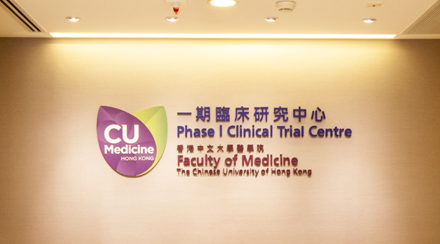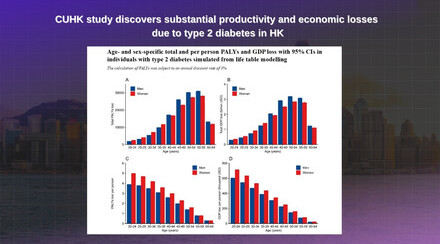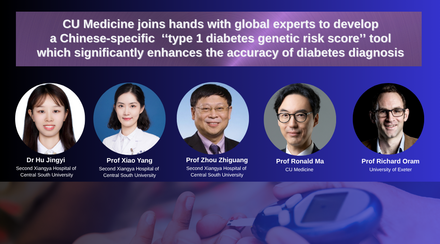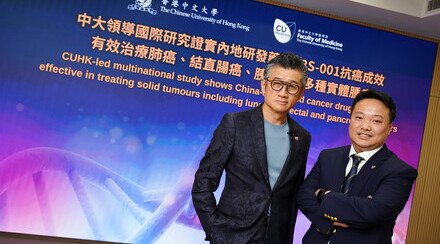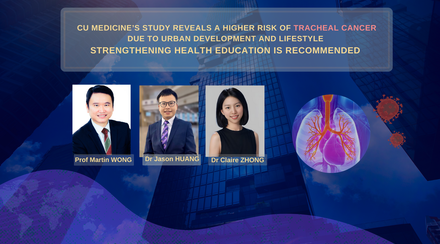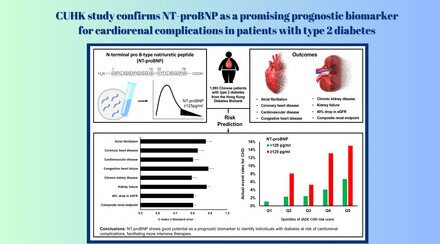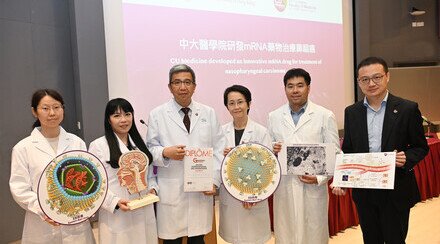CUHK Phase 1 Clinical Trial Centre celebrates 10th anniversary Centre has completed 150 early-stage studies of novel drugs for cancer, diabetes and more
The Chinese University of Hong Kong (CUHK)’s Phase 1 Clinical Trial Centre (CUHK P1CTC) is celebrating its 10th anniversary. Over the past 10 years, CUHK P1CTC, with its state-of-the-art facilities, has completed 150 early-stage studies of novel drugs for cancer, diabetes, liver diseases, heart diseases and more, contributing to the drug registration process in Europe, the US and mainland China. Furthermore, the CUHK team has built a healthy volunteer database of over 8,000 people, which provides a solid foundation for clinical research in Hong Kong.

CUHK Phase 1 Clinical Trial Centre (P1CTC) celebrates 10th anniversary. Over the past decade, CUHK P1CTC has completed over 150 early-stage studies of novel drugs for cancer, diabetes, liver, heart diseases, and more. The team has as well built a healthy volunteer database of more than 8,000 people, providing a solid foundation for clinical trial in Hong Kong. (From right) Chief Director Professor Anthony Chan, Medical Director (Oncology) Professor Bridget Ma, study participants Mrs Chan and Mr Lee, Deputy Medical Director (Non-Oncology) Dr Elaine Chow and Medical Director (Non-Oncology) Professor Andrea Luk of CUHK P1CTC.
Early-stage clinical study data submitted to authorities worldwide
New medications are developed through clinical research. CUHK was the first institution in Hong Kong to conduct phase 1 clinical trials, which involve administering new medications to human beings for the first time after extensive laboratory testing, primarily to assess their safety and tolerability. With support from the government, CUHK established P1CTC in 2013 as a driving force for innovative medical research and a resource in the search for novel therapeutic solutions that suit Chinese and other Asian communities.
Professor Anthony Chan, Chief Director of CUHK P1CTC and Li Shu Fan Medical Foundation Professor of Clinical Oncology at CU Medicine, remarked, “CUHK is fully committed and ready to conduct clinical trials with the aim of providing innovative therapies to patients. Our Centre is at the forefront of clinical research with first-in-human studies and was accredited by the National Medical Products Administration (NMPA) in 2016, meaning the clinical study data generated there will be accepted by regulatory authorities in mainland China for registration purposes. Our data have also been submitted to the US, European and Japanese regulatory authorities.”
Clinical cancer trials give patients hope
Cancer constitutes 40% of the Centre’s clinical trials, with the others including liver disease, heart disease and diabetes. The CU Medicine clinical oncology team’s work has resulted in novel drugs being developed for lung, nasopharyngeal and liver cancers.
Professor Brigette Ma, Medical Director (Oncology) of CUHK P1CTC and Professor in the Department of Clinical Oncology at CU Medicine, said, “Some cancer patients develop resistance to treatment after a period, so we need to explore new therapeutic options. Clinical research is not without risk, but it often provides late-stage or treatment-lacking patients with a ray of hope for survival. We have a very experienced team dedicated to helping patients navigate through the tough times.”
CUHK team helped confirm new diabetes treatment
CUHK P1CTC’s diabetes team is expert in evaluating novel drugs and devices to treat the disease. For instance, the team demonstrated that first-in-class glucokinase activator dorzagliatin can restore abnormal pancreatic glucose sensing in people with diabetes. This drug was approved by the China NMPA in 2022 as a new diabetes treatment option.
Dr Elaine Chow, Deputy Medical Director (Non-Oncology) of CUHK P1CTC and Assistant Professor in the Department of Medicine and Therapeutics at CU Medicine, said, “P1CTC collaborates closely with overseas and local startups to develop new medications and devices that can transform patient care.”

Mrs Chan was diagnosed with advanced triple negative breast cancer in 2017. Unfortunately, cancer came back after treatment and the tumour kept growing. She was subsequently referred to participate in novel immunotherapy study at CUHK P1CTC. Her cancer was successfully under control after three years of trial. Mrs Chan said her biggest dream had been to see her sons getting married and having children. Now she has had her dream come true thanks to the clinical trial.

Mr Lee has been suffering from Type 1 diabetes for more than 30 years and has to closely monitor his blood sugar level every day. He has joined two CUHK’s clinical trials over the past decade, including a new insulin treatment option and a new blood sugar monitoring device. He was happy to try out the two innovations which did make his life easier and relief his stress over blood sugar monitoring and managing. He hopes his contribution as a clinical trial subject could help bring in more treatment options for other diabetes patients.
Healthy volunteers are indispensable for early-stage clinical trial success
Recruiting healthy volunteers is essential for early-stage clinical studies. Currently over 8,000 people have joined the Centre’s healthy volunteer scheme by registering online. As of today, 2,500 of them have participated in over 40 studies.
Professor Andrea Luk, Medical Director (Non-Oncology) of CUHK P1CTC and Professor in the Department of Medicine and Therapeutics at CU Medicine, said, “We are deeply grateful for the support of the numerous healthy volunteers who have participated in clinical research, offering new treatment prospects for patients in need. As the general public gains more exposure and understanding of medical research, we hope to see more people become volunteers and help initiate more early-stage clinical studies.”
Professor Chan concluded, “Hong Kong is at the forefront of medical research, with world-class teams conducting basic and clinical research. Chinese medicine and biotechnology are the two areas we have started to explore, including evaluating drug delivery systems and devices for Chinese medicine and facilitating the clinical translation of scientific discoveries in biotechnology and life science inventions. We will continue our efforts to enrich the local research ecosystem and heighten Hong Kong’s exposure to the best medical innovation.”
.jpg)
CUHK P1CTC is equipped with four cubicles, 24 beds in total, dedicated for overnight observations. The Centre also has its own laboratory, drug storage & specimen processing facilities and advanced therapy products storage for research purpose.




